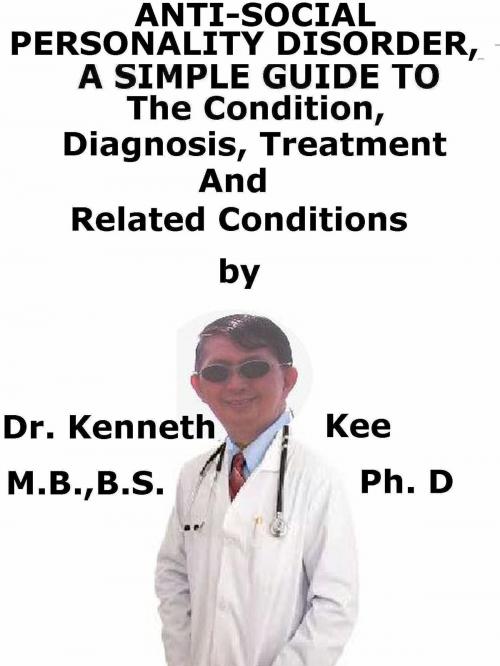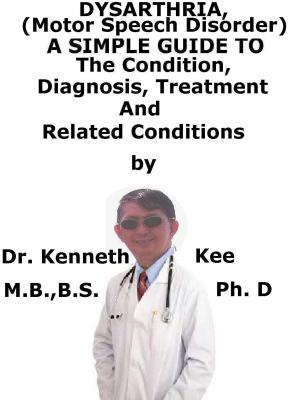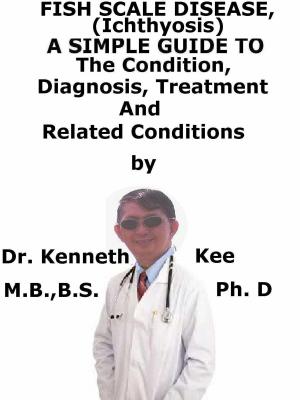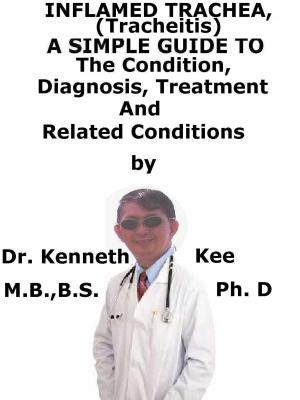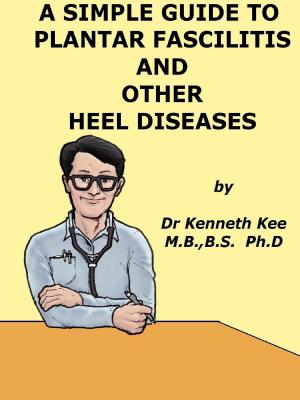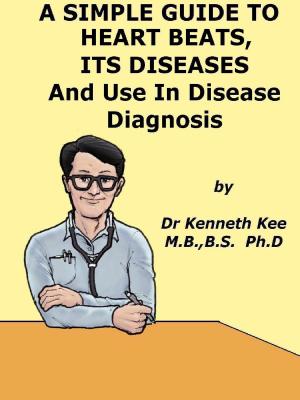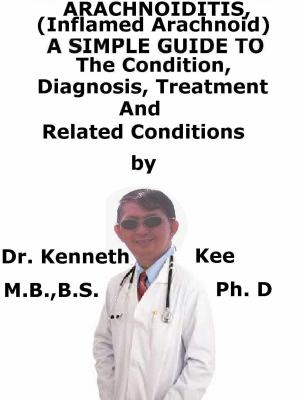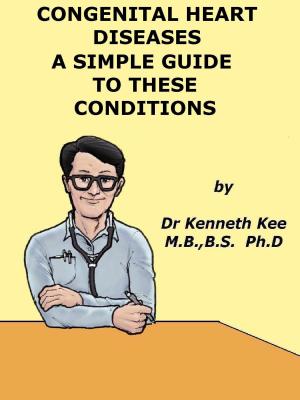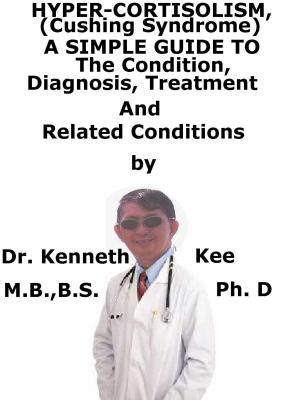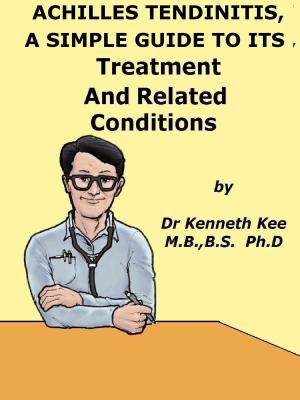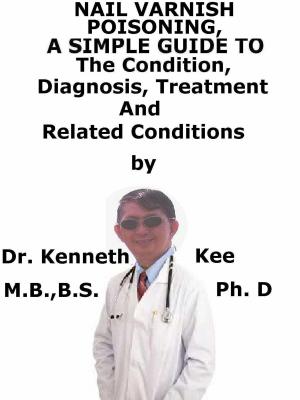Anti-Social Personality Disorder, A Simple Guide To The Condition, Diagnosis, Treatment And Related Conditions
Nonfiction, Health & Well Being, Psychology, Pathological Psychology, Personality| Author: | Kenneth Kee | ISBN: | 9780463298251 |
| Publisher: | Kenneth Kee | Publication: | October 15, 2018 |
| Imprint: | Smashwords Edition | Language: | English |
| Author: | Kenneth Kee |
| ISBN: | 9780463298251 |
| Publisher: | Kenneth Kee |
| Publication: | October 15, 2018 |
| Imprint: | Smashwords Edition |
| Language: | English |
This book describes Anti-Social Personality Disorder, Diagnosis and Treatment and Related Diseases
An antisocial personality disorder should be related to an anti-social condition but surprisingly it is more about criminal, delinquents and heartless people!
Antisocial personality disorder is a mental disorder in which a person has a chronic pattern of manipulating, exploiting, or violating the rights of others without remorse.
This form of behavior is often criminal in nature.
Impulsive and criminal behavior is frequent.
Those with ASPD often has an impaired moral conscience and make decisions driven purely by their own desires without improving the needs or negative effects of their actions on others.
People with anti-social personality disorder (ASPD) can be witty, charming, and fun to be around but they also lie and exploit others.
Studies indicate that the average intelligence of anti-social personalities is higher than the normal.
Anti-social personalities do have a superficial charm.
They can be attentive and cunning and have an instinctive ability to:
1.Quickly observe and analyze others,
2.Determine their needs and preferences, and
3.Present it in a manner to facilitate manipulation and exploitation.
They are able to hurt and use other people in this manner, without remorse, guilt, shame or regret.
To be anti-social is to be against society: against regulations, normal behaviors, laws and acceptable behavior.
Modern diagnostic systems regard ASPD to involve two related disorders:
- A "psychopath" is someone whose harmful actions toward others are likely to indicate calculation, manipulation and cunning.
They also are likely not to feel emotion and pretend empathy for others.
They can be deceivingly charismatic and charming.
Psychopathy is normally genetically based - By contrast, "sociopaths" are more likely to form attachments to others but still do not regard social norms.
They are likely to be more impulsive, haphazard, and readily agitated than people with psychopathy.
Sociopathy has roots in environmental causes.
Causes
Anti-social Personality Disorder is a result of a genetic predisposition and the environment
Symptoms
People with ASPD may often do:
1.Lie, steal, con, and exploit others
2.Act rashly
3.Be angry, vain, and arrogant
4.Fight or assault other people
5.Break the law
Diagnosis
Anti-social personality disorder is diagnosed from a psychological evaluation
The diagnosis cannot be made until age 18
Diagnosis is based on criteria from DSM-5 or ICD-10
Treatment
The treatment of Anti-social personality disorder is one of the most difficult.
People with this disorder normally do not look for treatment on their own.
They normally only start therapy when required to by a criminal court.
Behavioral treatments, such as those that recompense proper behavior and have negative after effects for illegal behavior, may help in some people
Talk therapy may also be useful.
People with an anti-social personality who have other co-morbid disorders, such as a mood or substance use disorder, are often treated for those disorders as well
When treatment is searched for, behavioral therapy or psychotherapy in individual or group situations may assist.
Doctors occasionally give certain psychiatric medicines like mood stabilizers or some atypical anti-psychotics to treat symptoms like impulsive aggression.
A definite form of CBT (Cognitive Behavioral Therapy) termed CSC (Cognitive Self Change) has reported marginal success at changing the behavior of violent people, both antisocial and otherwise
Persons with ASPD may face incarceration as a result of:
1.Their criminal actions,
2.Premature death
3.Loss of assets
TABLE OF CONTENT
Introduction
Chapter 1 Anti-Social Personality Disorder
Chapter 2 Causes
Chapter 3 Symptoms
Chapter 4 Diagnosis
Chapter 5 Treatment
Chapter 6 Prognosis
Chapter 7 Autism Spectrum Disorder
Chapter 8 Personality Disorder
Epilogue
This book describes Anti-Social Personality Disorder, Diagnosis and Treatment and Related Diseases
An antisocial personality disorder should be related to an anti-social condition but surprisingly it is more about criminal, delinquents and heartless people!
Antisocial personality disorder is a mental disorder in which a person has a chronic pattern of manipulating, exploiting, or violating the rights of others without remorse.
This form of behavior is often criminal in nature.
Impulsive and criminal behavior is frequent.
Those with ASPD often has an impaired moral conscience and make decisions driven purely by their own desires without improving the needs or negative effects of their actions on others.
People with anti-social personality disorder (ASPD) can be witty, charming, and fun to be around but they also lie and exploit others.
Studies indicate that the average intelligence of anti-social personalities is higher than the normal.
Anti-social personalities do have a superficial charm.
They can be attentive and cunning and have an instinctive ability to:
1.Quickly observe and analyze others,
2.Determine their needs and preferences, and
3.Present it in a manner to facilitate manipulation and exploitation.
They are able to hurt and use other people in this manner, without remorse, guilt, shame or regret.
To be anti-social is to be against society: against regulations, normal behaviors, laws and acceptable behavior.
Modern diagnostic systems regard ASPD to involve two related disorders:
- A "psychopath" is someone whose harmful actions toward others are likely to indicate calculation, manipulation and cunning.
They also are likely not to feel emotion and pretend empathy for others.
They can be deceivingly charismatic and charming.
Psychopathy is normally genetically based - By contrast, "sociopaths" are more likely to form attachments to others but still do not regard social norms.
They are likely to be more impulsive, haphazard, and readily agitated than people with psychopathy.
Sociopathy has roots in environmental causes.
Causes
Anti-social Personality Disorder is a result of a genetic predisposition and the environment
Symptoms
People with ASPD may often do:
1.Lie, steal, con, and exploit others
2.Act rashly
3.Be angry, vain, and arrogant
4.Fight or assault other people
5.Break the law
Diagnosis
Anti-social personality disorder is diagnosed from a psychological evaluation
The diagnosis cannot be made until age 18
Diagnosis is based on criteria from DSM-5 or ICD-10
Treatment
The treatment of Anti-social personality disorder is one of the most difficult.
People with this disorder normally do not look for treatment on their own.
They normally only start therapy when required to by a criminal court.
Behavioral treatments, such as those that recompense proper behavior and have negative after effects for illegal behavior, may help in some people
Talk therapy may also be useful.
People with an anti-social personality who have other co-morbid disorders, such as a mood or substance use disorder, are often treated for those disorders as well
When treatment is searched for, behavioral therapy or psychotherapy in individual or group situations may assist.
Doctors occasionally give certain psychiatric medicines like mood stabilizers or some atypical anti-psychotics to treat symptoms like impulsive aggression.
A definite form of CBT (Cognitive Behavioral Therapy) termed CSC (Cognitive Self Change) has reported marginal success at changing the behavior of violent people, both antisocial and otherwise
Persons with ASPD may face incarceration as a result of:
1.Their criminal actions,
2.Premature death
3.Loss of assets
TABLE OF CONTENT
Introduction
Chapter 1 Anti-Social Personality Disorder
Chapter 2 Causes
Chapter 3 Symptoms
Chapter 4 Diagnosis
Chapter 5 Treatment
Chapter 6 Prognosis
Chapter 7 Autism Spectrum Disorder
Chapter 8 Personality Disorder
Epilogue
